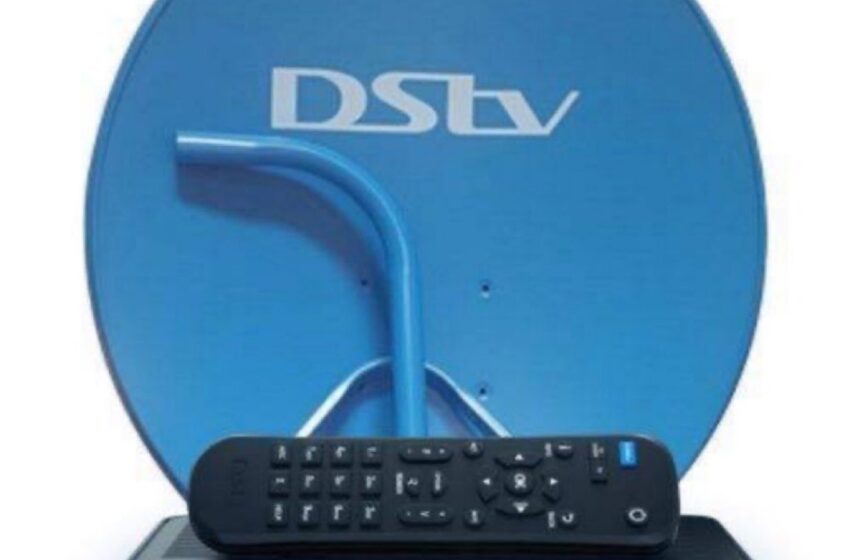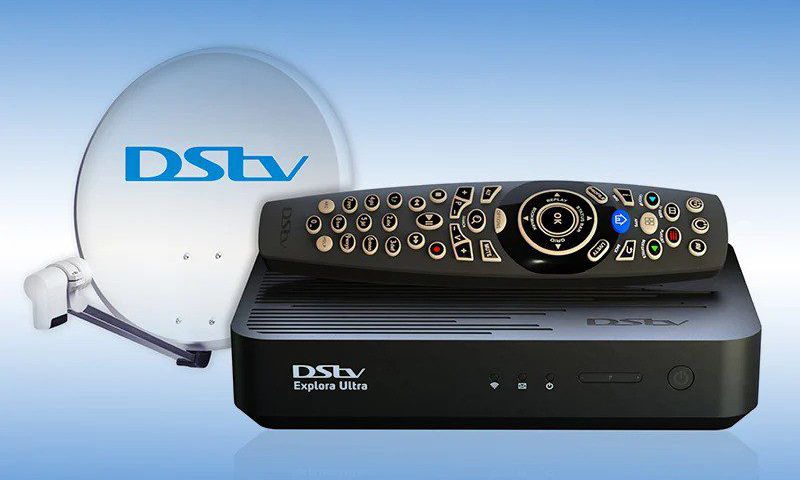The streaming revolution: How Netflix, YouTube, and others are challenging MultiChoice’s dominance in Africa

Multichoice Nigeria faces a major regulatory storm as it grapples with a ₦766m data privacy fine amid dwindling subscriber numbers and rising consumer discontent.
For over two decades, MultiChoice has dominated the African pay-TV market with its flagship platforms—DStv and GOtv—bringing sports, telenovelas, local dramas, and international content into millions of homes.
But as the tides of technology and consumer behavior shift, the once-unshakable grip of MultiChoice is beginning to loosen. The rise of Netflix, YouTube, Amazon Prime Video, Showmax, and other over-the-top (OTT) streaming services is radically altering how Africans consume content.
These platforms are not just alternatives to satellite TV—they’re a complete rethink of how media is accessed, paid for, and interacted with. With the ongoing economic crisis, rising subscription costs, and a generational shift in viewing habits, MultiChoice’s traditional model is facing its biggest existential threat yet.
From Dominance to Disruption: The Cracks in MultiChoice’s Fortress
For years, MultiChoice held a near-monopoly over premium entertainment in Africa. If you wanted to watch the English Premier League, Champions League, Big Brother Naija, Nollywood blockbusters, or international shows, DStv was the gatekeeper. This made it an essential part of middle-class life across Nigeria, South Africa, Ghana, Kenya, and beyond.
But the market has changed. New technologies and global competition have exposed the limitations of the satellite TV model: rigid schedules, expensive bouquet structures, no personalized experiences, and poor customer flexibility. Today’s consumer is mobile, smart, and connected. They want control over what they watch, when they watch, and how much they pay.
Streaming Platforms Are Winning With Flexibility and Price
One of the biggest reasons streaming is outperforming satellite TV is its affordability and flexibility. In Nigeria, DStv’s Premium bouquet currently costs over ₦29,000 per month, while Netflix’s basic plan starts at less than ₦3,000. This stark difference is even more significant in a country where inflation and unemployment have left many households cutting down on non-essential expenses.
“The repeated increase in DStv subscription prices, which the company attributes to rising operational costs, has negatively affected the average Nigerian consumer. Most people earn so little that they can no longer afford the country’s leading cable TV service,” said Mr. Kunle, a Lagos resident who stopped using DStv in May 2024 told Crisp Nigeria.
“This has forced many to resort to watching live football matches at viewing centers, open bars, hotels, and sports betting shops as a way to cut costs while still enjoying the games. As for the movies offered on DStv, a lot of viewers have shifted to platforms like YouTube and Netflix, where they can access newer, up-to-date releases at a more affordable rate,” he told Crisp Nigeria.
Streaming platforms, meanwhile, allow monthly, weekly, or mobile-specific plans, and can be paused or cancelled at any time—no dish installations or setup fees required.
Digital Growth and Smartphone Penetration Are Fueling the Shift
According to Statista, internet penetration in Nigeria is projected to exceed 70% by 2026, driven by smartphone adoption and falling data prices. This is fueling an explosion in digital consumption, especially among the under-35 demographic who make up the bulk of the population.
These consumers are not interested in waiting for fixed airtime schedules. With a smartphone or smart TV, they can access content on-demand, catch highlights on YouTube, or stream live games using apps—even if unofficial.
Furthermore, Nigerian telcos now offer YouTube and Netflix data bundles, removing even more barriers to streaming access.
Content Is King—and Streaming Has More of It
Gone are the days when DStv’s SuperSport and Africa Magic had a near-monopoly on premium content. Today, Netflix features Nollywood originals, Amazon Prime is investing in African content, and YouTube is home to thousands of local creators producing comedy skits, films, music, and vlogs that resonate deeply with the Nigerian audience.
For Gen Z, the most watched content may not even come from a TV studio—it could be a skit by Sabinus, a podcast by Korty EO, or a live DJ set on Instagram.
Okezie Omorogie, a tech analyst and football enthusiast, shared his perspective:
“Based on my observations, the media dynamics is changing. Many people don’t see the need for DStv decoder anymore, it’s like using Motorola phone in 2025, people just prefer streaming platforms. I have visited homes not like family homes but something young and single kind and the TV’s are either there for content creation or to watch movies on Netflix and Prime. I am not saying that TV stations or satellite TV will vanish, I mean TVs will still be here even for another century but the purpose of been the source of news and entertainment is leaving their hands.”
This shift has forced content creators and marketers to pivot away from cable TV ad placements and toward platforms where the youth truly live—Instagram, TikTok, YouTube, and WhatsApp.
MultiChoice’s Response: Playing Catch-Up with Showmax
To respond to this disruption, MultiChoice has tried to modernize its model. The company relaunched Showmax in early 2024, now rebranded and powered by NBCUniversal and Sky, offering more international titles and exclusive sports content.
However, adoption has been slow. Many users complain about limited device compatibility, clunky interfaces, geo-restrictions, and subscription confusion between DStv and Showmax. Others argue that the content offering still lags behind the more robust libraries of Netflix and Amazon Prime.
Additionally, while streaming thrives on sharing culture, MultiChoice continues to restrict logins and devices, unlike Netflix, which allows multi-screen usage across households.
Live Sports: DStv’s Last Stronghold?
To its credit, MultiChoice still holds exclusive rights to top-tier football events, including the English Premier League, Champions League, and AFCON. For now, live sports remain its biggest retention tool.
However, even this dominance is being challenged. Tech-savvy users are turning to online streams, mobile betting apps, and pub viewing to watch games without the high cost of subscription.
Moreover, piracy remains rampant, with Telegram groups and illegal IPTV boxes offering access to DStv content for a fraction of the price. Unless MultiChoice shifts strategy, it may lose even this prized territory.
The Road Ahead: Adapt or Fade Out
The African media landscape is no longer about monopoly—it’s about mobility, affordability, relevance, and engagement. DStv’s legacy may have been built on exclusivity, but the future belongs to platforms that give users control.
For MultiChoice to remain relevant, it must:
-
Lower its pricing tiers
-
Offer more flexible streaming packages
-
Integrate social media and digital content
-
Improve user experience across all devices
-
Localise content better while appealing to a globalised audience
The battle is no longer about who owns the satellite—it’s about who owns the attention span.
A Revolution in Real Time
The revolution is already happening. Streaming has become the new normal, not a trend. Viewers want freedom, convenience, and value, and they are voting with their wallets and their screens. MultiChoice may still hold legacy power, but in this digital-first era, legacy is no longer enough.
As Nigerians like Mr. Kunle and millions across Africa make the switch, the question is not if MultiChoice will change—but how fast.
READ ALSO
Explainer: Why MultiChoice keeps increasing DStv and GOtv prices in Nigeria
MultiChoice in crisis: Price cuts, subscriber exodus, and the battle for relevance
MultiChoice, MTN Group… top 10 African businesses owned by South Africans
10 things MultiChoice can do amid rising subscriber loss
MultiChoice history: From Pay‑TV pioneer to facing digital disruption
MultiChoice cuts DStv decoder price by 50% to attract subscribers
MultiChoice 50% price cuts: Has Satellite TV era come to an end?
John Ugbe, other top MultiChoice executives set to be arraigned, see reason
From over N15k to N12k — how MultiChoice reversed DStv, Gotv prices after backlash
Full list: Multichoice increases DStv, GOtv subscription prices… see new rates
“Why I haven’t renew my DStv subscription since May 2024 — Lagos resident speaks


